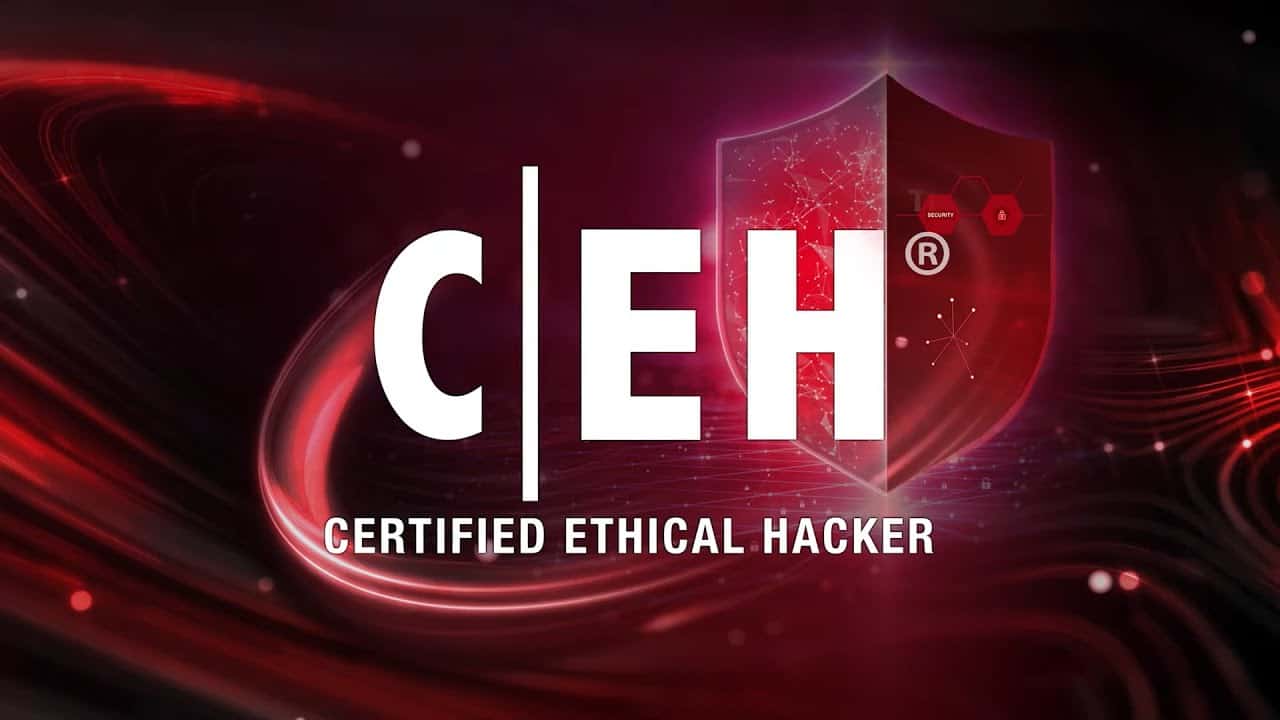The Certified Ethical Hacker v13 (AI) course at Cybergen Training is your gateway to mastering ethical hacking. This course is powered by AI capabilities and covers 20 comprehensive modules. You’ll learn the fundamentals of information security, including footprinting, network scanning, system hacking, and malware analysis.
Learning Objectives and Outcomes
Introduction to Ethical Hacking: Understand the fundamentals of ethical hacking, information security controls, relevant laws, and standard procedures.
Footprinting and Reconnaissance: Learn techniques and tools for gathering information during the pre-attack phase.
Scanning Networks: Master network scanning techniques and countermeasures.
Enumeration: Discover various techniques including BGP and NFS exploits, and identify countermeasures.
Vulnerability Analysis: Identify security loopholes and learn about different vulnerability assessment tools and types.
System Hacking: Explore methodologies like steganography and steganalysis for identifying system and network vulnerabilities.
Malware Threats: Understand different types of malware, procedures for malware analysis, and countermeasures.
Social Engineering: Learn techniques for identifying theft attempts and auditing human-level vulnerabilities.
Target Audience for Certified Ethical Hacker v13 (AI) CEH
Certified Ethical Hacker v13 (CEH) offers advanced training in ethical hacking powered by AI
capabilities, targeting IT professionals aiming to enhance their cybersecurity skills.
▪ Ethical Hackers
▪ Penetration Testers
▪ Network Security Specialists
▪ Information Security Analysts
▪ Cybersecurity Consultants
▪ IT Auditors
▪ Site Administrators
▪ System Administrators
▪ IT Managers
▪ Aspiring Cybersecurity Professionals
Course Prerequisites
Prerequisites for Certified Ethical Hacker v13 (AI) CEH Course
To ensure you have the best learning experience in our Certified Ethical Hacker v13 (AI) course, it’s
recommended that you meet the following minimum prerequisites:
Basic Networking Knowledge: Understanding of basic networking concepts and protocols such as
TCP/IP, DNS, and OSI model.
Fundamental Cybersecurity Concepts: Familiarity with basic cybersecurity principles and
practices, including understanding of common threats and vulnerabilities.
Experience with Operating Systems: Practical experience with different operating systems,
particularly Windows and Linux, as you’ll need to navigate and perform tasks in these environ-
ments.
Basic Knowledge of Programming: Some understanding of programming or scripting languages
can be beneficial but is not mandatory.
Prior IT Experience: Having 1-2 years of experience in IT, particularly in network support, systems
administration, or security roles, will be advantageous.
-
-
Module 01: Introduction to Ethical Hacking
-
Module 02: Footprinting and Reconnaissance
-
Module 03: Scanning Networks
-
Module 04: Enumeration
-
Module 05: Vulnerability Analysis
-
Module 06: System Hacking
-
Module 07: Malware Threats
-
Module 08: Sniffing
-
Module 09: Social Engineering
-
Module 10: Denial-of-Service
-
Module 11: Session Hijacking
-
Module 12: Evading IDS, Firewalls, and Honeypots
-
Module 13: Hacking Web Servers
-
Module 14: Hacking Web Applications
-
Module 15: SQL Injection
-
Module 16: Hacking Wireless Networks
-
Module 17: Hacking Mobile Platforms
-
Module 18: IoT Hacking
-
Module 19: Cloud Computing
-
Module 20: Cryptography
-


